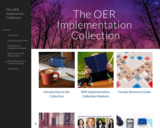In this curriculum module, students in high school life science, marine science, and/or chemistry courses act as interdisciplinary scientists and delegates to investigate how the changing carbon cycle will affect the oceans along with their integral populations.
The oceans cover 70 percent of the planet and play a critical role in regulating atmospheric carbon dioxide through the interaction of physical, chemical, and biological processes. As a result of anthropogenic activity, a doubling of the atmospheric CO2 concentration (to 760 ppm) is expected to occur by the end of this century. A quarter of the total CO2 emitted has already been absorbed by the surface oceans, changing the marine carbonate system, resulting in a decrease in pH, a change in carbonate-ion concentrations, and a change in the speciation of macro and micronutrients. The shift in the carbonate system is already drastically affecting biological processes in the oceans and is predicted to have major consequences on carbon export to the deep ocean with reverberating effects on atmospheric CO2. Put in simple terms, ocean acidification is a complex phenomenon with complex consequences. Understanding complexity and the impact of ocean acidification requires systems thinking – both in research and in education. Scientific advancement will help us better understand the problem and devise more effective solutions, but executing these solutions will require widespread public participation to mitigate this global problem.
Through these lessons, students closely model what is occurring in laboratories worldwide and at Institute for Systems Biology (ISB) through Monica Orellana’s research to analyze the effect CO2 has on ocean chemistry, ecosystems and human societies. Students experiment, analyze public data, and prepare for a mock summit to address concerns. Student groups represent key “interest groups” and design two experiments to observe the effects of CO2 on seawater pH, diatom growth, algal blooms, nutrient availability, and/or shell dissolution.
- Subject:
- Atmospheric Science
- Physical Science
- Material Type:
- Module
- Author:
- Aisha McKee
- Alexis Boleda
- Alexis Valauri-Orton
- Allison Lee Cusick
- Anna Farrell-Sherman
- Baliga Lab
- Barbara Steffens
- Claudia Ludwig
- Danny Thomson
- Dexter Chapin
- Dina Kovarik
- Donald Cho
- Eric Grewal
- Eric Muhs
- Helen Ippolito
- Holly Kuestner
- Institute for Systems Biology
- Jeannine Sieler
- Jennifer Duncan-Taylor
- Jia Hao Xu
- JoAnn Chrisman
- Jocelyn Lee
- Kedus Getaneh
- Kevin Baker
- Mari Knutson Herbert
- Megan DeVault
- Meredith Carlson
- Michael Walker
- Monica V. Orellana
- Nitin S. Baliga
- Olachi Oleru
- Raisah Vestindottir
- Steven Do
- Systems Education Experiences
- William Harvey
- Zac Simon
- Date Added:
- 03/09/2023
